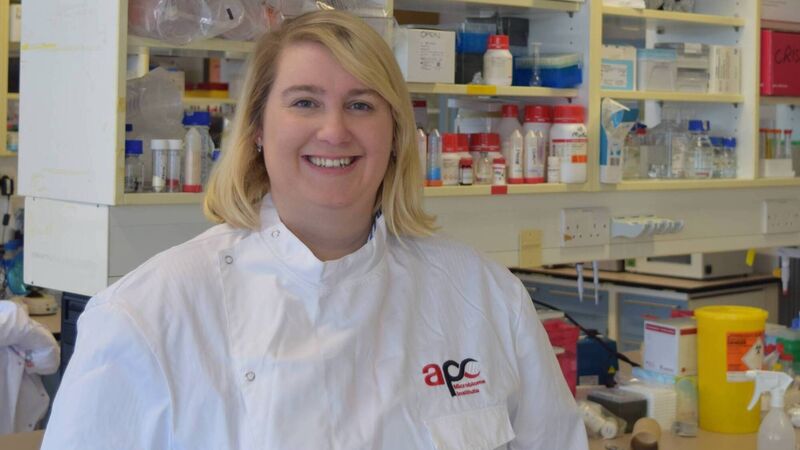Gut microbes may be targeted in the future to treat children with devastating brain tumours

Lily Keane, principal investigator at APC Microbiome Ireland and a lecturer in the department of Anatomy and Neuroscience at UCC, is focused on targeting this leading cause of brain tumour-related deaths in children. Picture: Tina Darb
Children with a rare but devastating type of brain tumour may be treated with a probiotic supplement in the future, as research on alternative treatments gathers pace.
Young patients are typically given as little as nine months to live upon diagnosis with a deadly tumour called DIPG (Diffuse Intrinsic Pontine Glioma), or diffuse midline glioma.










